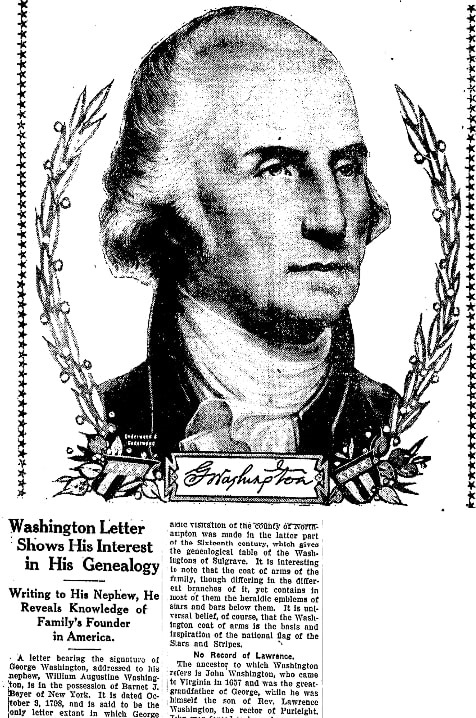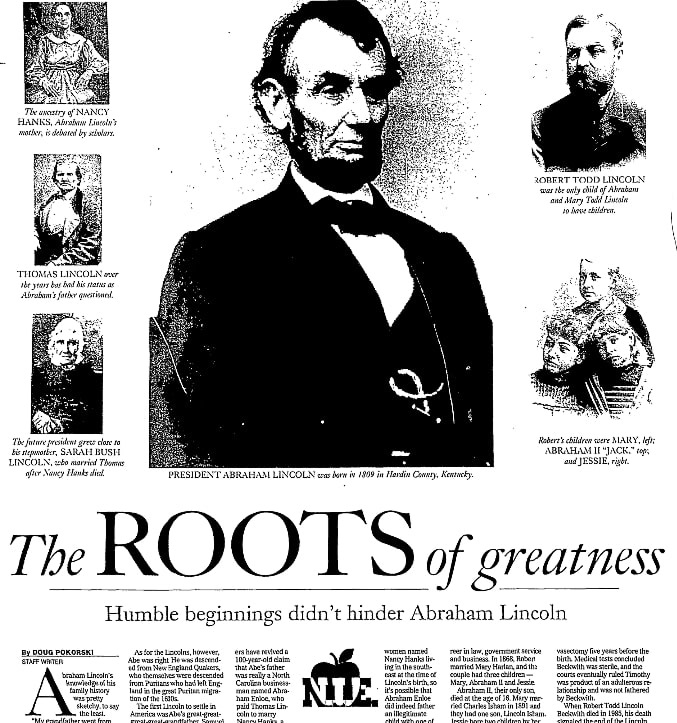Introduction: In this article – in honor of today being Presidents Day – Gena Philibert-Ortega gives three tips for researching that family story saying you’re related to a U.S. president. Gena is a genealogist and author of the book “From the Family Kitchen.”
So, you’ve heard the family story that you are related to a past President of the United States. Is it true or is it just a family legend? Before you add that name to your family tree, you’ll want to carefully check that story. Despite the belief that all family legends have at least a kernel of truth, they still need to be carefully researched and verified. Below are three steps to take.

Three Steps for Your Presidential Research
1) Is it Probable? Sometimes family stories are just that, stories. Part of your research process should be not only to evaluate the sources you consult, but to also analyze that family legend. Think about that family story and ask yourself these questions:
- Who told you the story? How did they hear that story? What is their “proof”?
- What do you know about that President’s life? When was he born and when did he die? Where was he born? Where did he die? Who are his parents?
- Does the story make sense with what you know about your family history? How are you supposedly related?
Once you determine that the story is probable, you can move on to researching the genealogy to prove or disprove the story (remember, it may not be true but that still requires some research).
One last thought about the probability of the story being true. Let’s say the story seems very improbable. Was grandma just making it up? Maybe, but there can be a whole host of reasons why the story has been passed down. Maybe your family has a similar surname as the President or his First Lady. Maybe they lived in the same general area. Maybe you even have an ancestor that was named for that President. Maybe there’s a vague story linking you to another historical person, which means you’re also distantly related to a President. These stories have an origin that may be unknown to us, but we still need to look at them objectively to determine if they are true.

2) Trace Yourself Back Carefully. After determining the probability of the story, you need to trace yourself back to that President. Maybe you’ve even done that. Remember that genealogy is about connecting children to parents, and in order to do that you need to start with yourself and go backward in time. Do not jump generations in order to quickly find what you hope is your famous ancestor. That is a recipe for mistakes. Carefully trace each child to their parents, gathering the records that show that connection.
3) Use Trusted Sources. Lucky for you, professional genealogists love to trace famous roots and there are several trusted sources to help you learn more about those presidential roots. The gold standard in presidential genealogy, Gary Boyd Roberts’ book Ancestors of American Presidents, was last updated in 2009 and contains pedigrees for Presidents Washington to Obama, as well as information about their royal lines and Mayflower descendants.
Other resources can be found by searching the FamilySearch Catalog and Cyndi’s List’s U.S. Presidents category. You can also find online trees and DNA projects that might be of interest. Make sure that you double check those online trees for credible sources.
Whom Are You Related To?
It’s always great to hear a family member’s story of being related to someone famous. How much better is it to learn of a presidential connection that also might lead you to royalty or the Mayflower? Remember that a story is just that until it is proven. The way you prove it is with careful research using credible sources.
